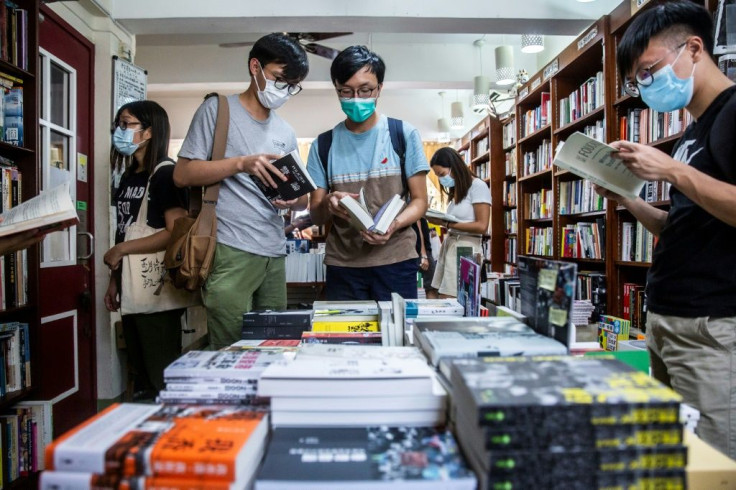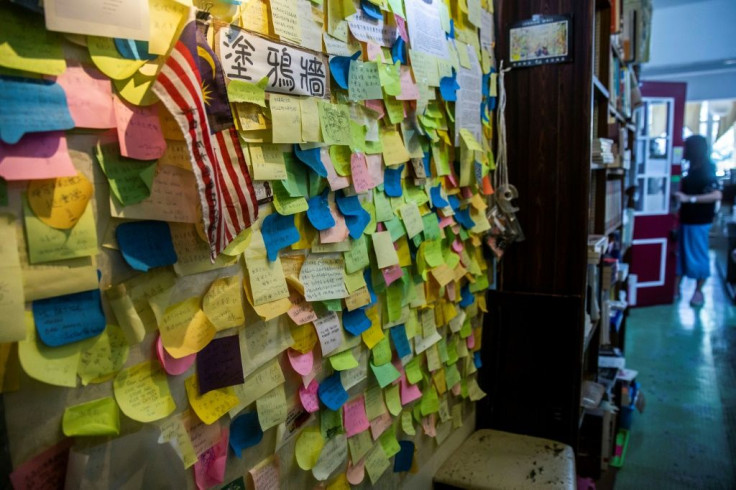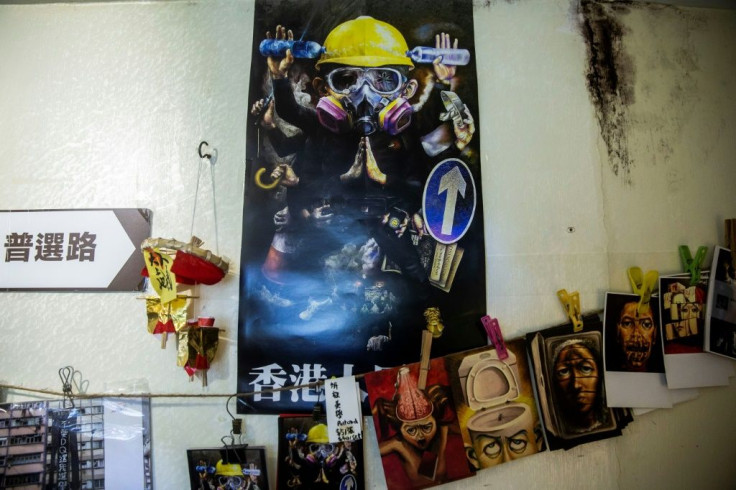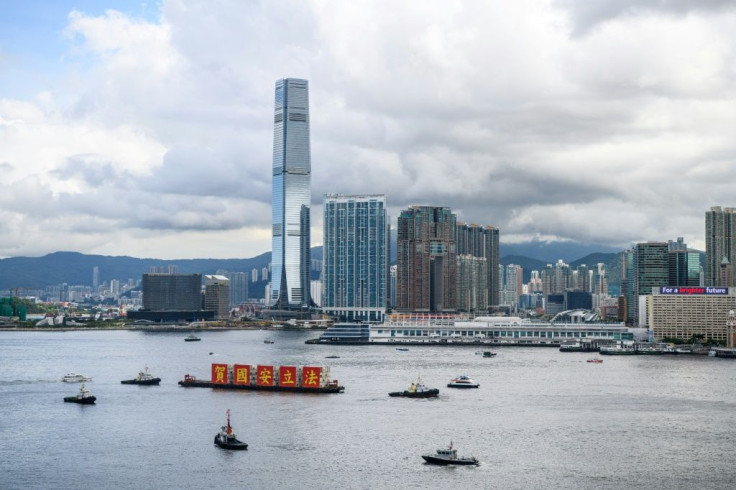Jittery Hong Kong Authors Seek Taiwan Safety After Security Law
China's new security law has cast a threatening shadow over Hong Kong's dynamic book industry, with anxious publishers combing through back catalogues for potentially "subversive" material, and looking to Taiwan as a safe haven for printing fresh titles.
The city has long been a refuge for intellectuals, free from the authoritarian grip of the Chinese mainland's communist leaders.
But that status is at risk of crumbling as Beijing's new legislation sends fresh jitters through a publishing industry already wary of overstepping China's red lines.
"Major publishing and printing houses now dare not touch a project like ours," said Woody, one of a group of journalists putting together a book of interviews with witnesses of Hong Kong's explosive pro-democracy protests last year.

The team were forced to review the entire contents of the title -- "Our Last Evolution" -- after Beijing served notice of the law in June, and three writers subsequently requested changes.
"For the rest, it's not that they don't have any fear, they just don't know what specifically they should worry about," he said, asking to use just a first name.

Beijing has made no secret of its dislike of the books that roll off printing presses in Hong Kong, often painting an unflattering and at times salacious picture of many Chinese officials.
In 2015, five Hong Kong booksellers offering gossip-filled tomes vanished -- including one from Thailand -- before resurfacing in mainland custody making "confessions".
One skipped bail and went public with a story of kidnapping and lengthy interrogations. He has since fled to Taiwan.
The climate of fear has only intensified under the new law, which uses vague language to target secession, subversion, terrorism and collusion with foreign forces.

Public and school libraries have already started pulling books deemed inappropriate or legally risky, including those by prominent democracy activists such as Joshua Wong.
Breakazine, a quarterly magazine exploring social problems in Hong Kong, cancelled publication of its latest issue and suspended production of the next one.
It said it had obtained legal opinion and was forced to act due to "uncertainties" in the implementation of the new law.

The answer, say some publishers, is Taiwan, the nearby self-ruled democratic island that Beijing claims but has yet to bring under Communist Party rule.
Taipei publisher Liu Gi said the "Our Last Evolution" team was one of a number working on books about the Hong Kong protests that came knocking on his door in June as the law was being formulated.
Liu, who runs Alone Publishing as a one-man operation, said it signalled an ironic switch for Hong Kong, which previously served as a publishing haven for Taiwanese literature when the island endured decades of authoritarian rule.
"It appears to me that history is repeating itself in a reversed way," Liu told AFP.
"When Taiwan was under martial law, books banned here had to be published in Hong Kong and smuggled back to Taiwan. Now the opposite is happening."
Liu said a book titled "Umbrella Uprising" which brings together a collection of art from the Hong Kong protests shipped all 1,500 copies to Taiwan in July.
"It is generally just a safer way to manage the stocks and the publication process," Jeffrey Choy, chief editor of the book, told AFP from London.
"It's safer for me not to say anything about that."
But Taiwan does not guarantee a brighter future.
Liu, who also leads Taiwan's Independent Publishers Alliance, said books about the Hong Kong protests have not made much headway in the local market as big publishing houses with global footprints are fearful of repercussions from Beijing.
"It may be easier for small and independent publishing houses like mine because we are good as long as ends meet," Liu said.
"But major houses will have more concerns because they may be barred from markets in Hong Kong and mainland China after making these books."
Liu is now looking for a safe channel to funnel sensitive books back into Hong Kong.
"I think publishers in Taiwan have some responsibility to help save some of the free voices in Hong Kong," he said.
"We believe restrictions like the national security law will disappear some day in the future -- we need to support each other to get through the period before that."
© Copyright AFP 2024. All rights reserved.





















